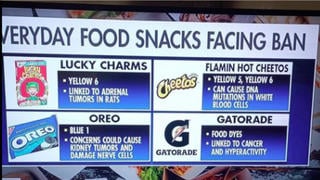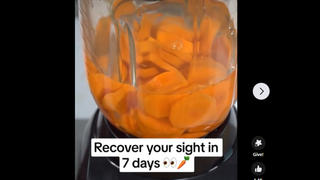
Did an Oxford University scientific study conclude that women need to go out with friends twice a week to stay healthy? No, that's not true: There is no such study, only a "social experiment" conducted by an Oxford psychology professor involving five men -- and no women -- to measure the happiness men get from direct interaction -- "doing things" -- with other men. It was funded by the Guinness Beer company for a television ad campaign to promote men going to pubs more regularly to drink beer with their friends. It made no conclusions about women and their friends.
The story originated from an article (archived here) where it was published on February 10, 2019 under the title "Women Need To Go Out With Friends Twice A Week To Stay Healthy". It opened:
Do you enjoy going out with your besties? You should do it more often!One of the most important and yet least understood areas of psychology concerns is the role of friends in our lives. Though it might sound cliche', friends really do become closer than family at times.In fact, this bond is so essential in women's health that a study done by researchers from the University of Oxford. They revealed that women should go out with their girlfriends more often. The investigation pointed out that women seeing their friends twice a week is the key to achieve overall happiness.Robin Dunbar, the researcher behind the study, noted in an interview that women's overall health and wellbeing is improved when they get together with four closest companions two times a week in gatherings where they "do things."
This is what social media users saw:
The false story included more fake conclusions from the non-existent study:
The list of "things" include drinking, gossiping, and the much-preferred topic -- talking about rivals. The study has also linked quality girl time with multiple health benefits, like a stronger immune system, fewer anxiety levels, and increased generosity.But as we all know, not every friendship is the same. Not every woman needs a "squad," and that's completely fine. The research suggests that having four friends in the get-together is the maximum number to achieve physical and mental health benefits.
The study discovered that interact best when they talk about something that makes them laugh. Laughter is after all the best medicine. However, when the group is bigger than five people, funny circumstance that produce the necessary endorphins for happiness are not that credible anymore.
Guinness Beer hired Professor Robin Dunbar -- who is best known for the Dunbar's Number theory relating to how many friends your mind can keep track of -- to conduct a social experiment specifically for use in the company's #RoundUpYourMates ad campaign in 2013. His co-researcher was not a scientist, but British humorist Danny Wallace. Wallace and Dunbar were featured in a series of TV commercials in which they presented their "findings" in a fake interview. The ad campaign was deemed a disaster by several advertising publications. One of them explained why the "science" was bogus:
The 'science', if you can call it that, upon which the concept was based was shallower than a baby's bath. Basing an entire 'scientific study' around one single 5-a-side football match is frail on an epic scale. A sample size of one is hardly statistically significant. And the audience saw straight through it in the blink of an eye. Treat people like they're dumb and the result will always be the same.
Given the weakness of the underlying science, the inclusion of Professor Robin Dunbar also jarred. Was the fact that the man has a number named after him supposed to provide the credibility that the statistics didn't? If so, it failed. There was no explanation of the true science whatsoever, and repeatedly stating "because science says so" fools no-one.
A search of the Oxford database for it's actual scientific research failed to yield Dunbar's Guinness-funded report. Click here to see the full list of what is real. The "study" was only published on the Guinness coroporate website, but when you click on the link you find the beer maker has removed the report.
As for the claim that women's health is boosted by twice-a-week visits with friends, that may be true. But this story is false in claiming there is scientific evidence of it.
















